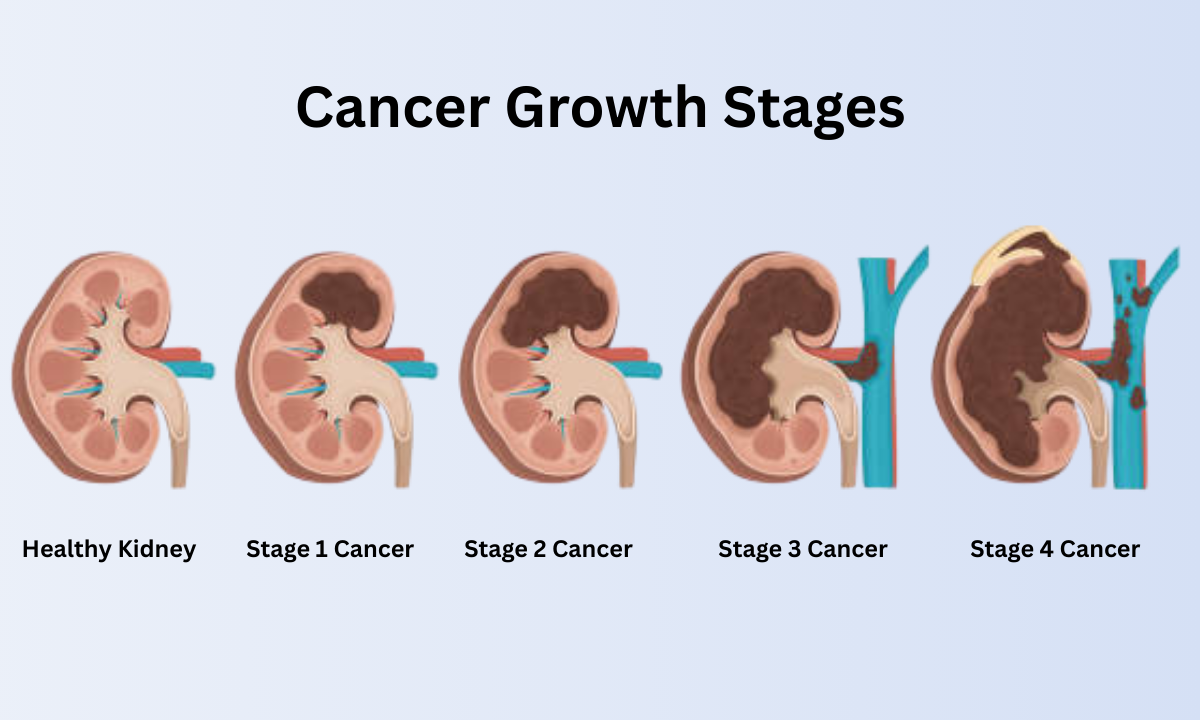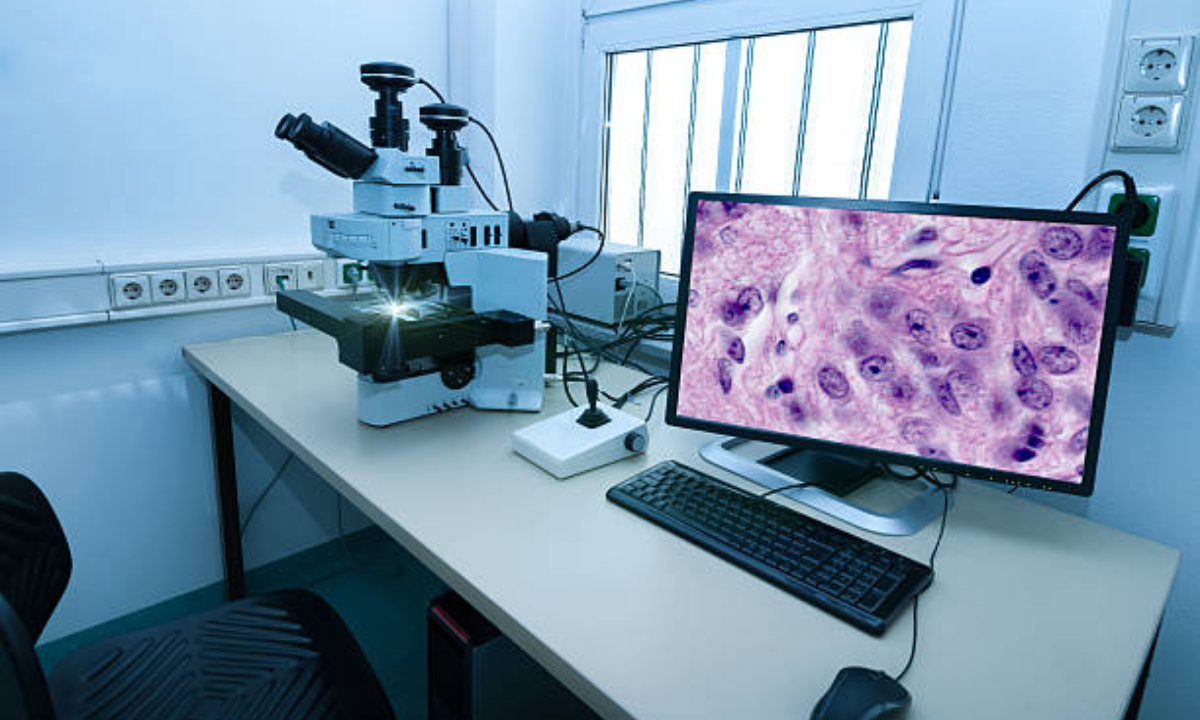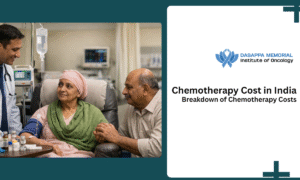When people hear the word cancer, one of the first questions they often ask is about the stages of cancer. Staging is a way doctors describe how far cancer has grown, how much it has spread, and how it may affect treatment choices.
At Dasappa Memorial Institute of Oncology, one of the trusted names as the Best Cancer Hospital in Bangalore, we know that the idea of cancer staging can feel overwhelming. But when explained in simple words, it becomes a tool that helps patients and families understand the journey ahead.
In this blog, we’ll explain how many cancer stages are there, what each stage means, how doctors decide and perform cancer staging and diagnosis, and what symptoms may look like in stages such as cancer stage two or cancer stage three. We will also touch upon topics like the cancer stage 4 survival rate to give you a clearer picture. By the end, you will feel more confident about what staging means and why it matters.
Why Understanding Cancer Stages Matters

Knowing the cancer growth stages is not just about medical terms. It’s about:
- Helping patients and families know what to expect.
- Guiding doctors in choosing the best treatment plan.
- Allowing comparisons of outcomes, survival rates, and treatment success.
Think of staging as a roadmap. Without it, patients may feel lost. With it, everyone knows where they are and what the next step could be.
How Many Cancer Stages Are There?
Most cancers are staged on a scale from stage 0 to stage 4. This scale shows how much cancer has grown and spread.
| Stage | What It Means |
| Stage 0 | Cancer is “in place” and has not spread at all. Often very treatable. |
| Stage 1 | Cancer is small and has not grown deeply into nearby tissues. |
| Stage 2 | Cancer has grown more, but is still limited to its original area. |
| Stage 3 | Cancer is larger and may have spread to nearby lymph nodes. |
| Stage 4 | Cancer has spread to distant parts of the body (metastasis). |
Stage 0 Cancer – The Earliest Warning

Cancer stage zero is sometimes called “carcinoma in situ”. This means abnormal cells are present, but they have not spread.
- Example: A small cluster of abnormal breast cells that has not invaded surrounding tissue.
- Treatment often involves surgery or monitoring.
- This is considered the best stage for successful treatment since it’s caught very early.
Tip: Regular screenings such as Pap smears, mammograms, and colonoscopies often detect cancers at this stage.
Stage 1 Cancer – Small but Present
At this stage, cancer has formed but remains localized.
- Example: A tumor in the lung that has not spread outside the lung tissue.
- Treatment may involve surgery, radiation, or a combination.
- Outlook is generally very positive.
Think of this stage as a tiny fire that has started but has not spread; it’s easier to put out early.
Stage 2 Cancer – Local Growth
When people hear about cancer stage two, it usually means the tumor is bigger or has grown deeper into nearby tissues.
- Example: A stomach cancer tumor that has invaded the stomach wall but not reached distant organs.
- Symptoms may start to appear, such as pain, swelling, or fatigue.
- Treatment often involves surgery, chemotherapy, or radiation
Stage two is more serious than stage one, but with timely treatment, many patients respond well.
Stage 3 Cancer – Advanced Local Spread
Cancer stage three is when cancer is larger, more invasive, and often involves nearby lymph nodes.
- Example: Breast cancer spreading to nearby lymph nodes in the armpit.
- Cancer stage 3 symptoms may include visible swelling, weight loss, or pain.
- Treatment typically involves a combination of surgery, chemotherapy, radiation, and sometimes targeted therapy.
| Feature | Stage 2 | Stage 3 |
| Tumor Size | Larger than stage 1 | Much larger and deeper |
| Spread | Local tissues only | Nearby lymph nodes |
| Symptoms | Mild to moderate | Noticeable and persistent |
This stage is more challenging, but advances in treatment have improved survival outcomes significantly.
Stage 4 Cancer – Metastatic Cancer
Stage four is often referred to as “advanced cancer”. At this stage, cancer has spread (metastasized) to distant organs.
- Example: lung cancer spreading to the liver or brain.
- Cancer stage 4 survival rate varies widely depending on the type of cancer, the patient’s health, and available treatments.
- Some cancers at this stage have lower survival rates, but modern therapies like immunotherapy and targeted drugs are improving outcomes.
- Treatment often focuses on controlling growth, improving quality of life, and extending survival.
Important Note: Stage four does not mean “no hope”. Many patients live longer than expected with the right treatment and care.
How Do Doctors Decide the Stage?
This process is called cancer staging and diagnosis. Doctors use several methods:
- Physical exams – Checking for lumps, swelling, or abnormalities.
- Imaging tests – X-rays, CT scans, MRIs, and PET scans to see inside the body.
- Biopsies – Examining a tissue sample under a microscope.
- Blood tests – Looking for cancer markers.
By combining these results, doctors can accurately determine the cancer stage.
Example of Staging in Real Life
Imagine a patient with colon cancer:
- Stage 0: Abnormal cells found during a routine colonoscopy.
- Stage 1: Tumor inside the colon wall only.
- Stage 2: Tumor spreads deeper into the colon layers.
- Stage 3: Cancer in nearby lymph nodes.
- Stage 4: Cancer spreads to the liver or lungs.
This simple step-by-step example shows how staging works in practice.
Tips for Patients and Families
- Don’t panic at the word “stage”– It’s a guide, not a prediction of outcome.
- Ask questions – Understand the stage, treatment options, and side effects.
- Get a second opinion – Especially for stages three and four.
- Focus on lifestyle – Diet, exercise, and stress management play a big role in recovery.
- Stay hopeful – Many treatments now allow patients to live long, fulfilling lives, even with advanced stages.
FAQs on Cancer Stages
Q1. How many cancer stages are there?
Most cancers are divided into five main stages, from stage 0 to stage 4. Some cancers may use slightly different staging systems, but the idea is always to show how much cancer has grown and spread.
Q2. Is stage 0 cancer cancer?
Stage zero is sometimes called a “pre-cancer” because abnormal cells are present but have not spread. With proper treatment, it is highly curable and often never becomes invasive cancer.
Q3. What is cancer stage 3?
They vary depending on the type of cancer but can include swelling, lumps, unexplained weight loss, persistent pain, or visible changes in the body. This is usually when symptoms become more noticeable.
Q4. How do modern therapies improve the survival rate of stage 4 cancer? Modern therapies such as targeted therapy, immunotherapy, and precision medicine have significantly improved outcomes for stage 4 cancer patients. While this stage is usually more challenging to treat, these advanced approaches help control cancer growth, reduce symptoms, and extend survival. Many patients are now living longer and with a better quality of life than in the past, thanks to these medical advances.
Q5. How do doctors decide the treatment at each stage?
Treatment depends on the stage, type of cancer, and the patient’s health. For example, stage 1 may involve surgery alone, while stage 3 could need surgery, chemotherapy, and radiation therapy together. Doctors customize each plan individually.
Final Thoughts
Understanding the stages of cancer helps patients and families take the fear out of uncertainty. From cancer stage zero to cancer stage four, each stage gives important clues about treatment options and outcomes.
At Dasappa Memorial Institute of Oncology, we have seen how awareness, early diagnosis, and timely treatment can make all the difference. A trusted name as the Best Cancer Hospital in Bangalore, we remain committed to guiding patients with clarity and compassion at every step of the journey.
Staying informed, asking the right questions, and seeking expert care are powerful steps in the fight against cancer.







